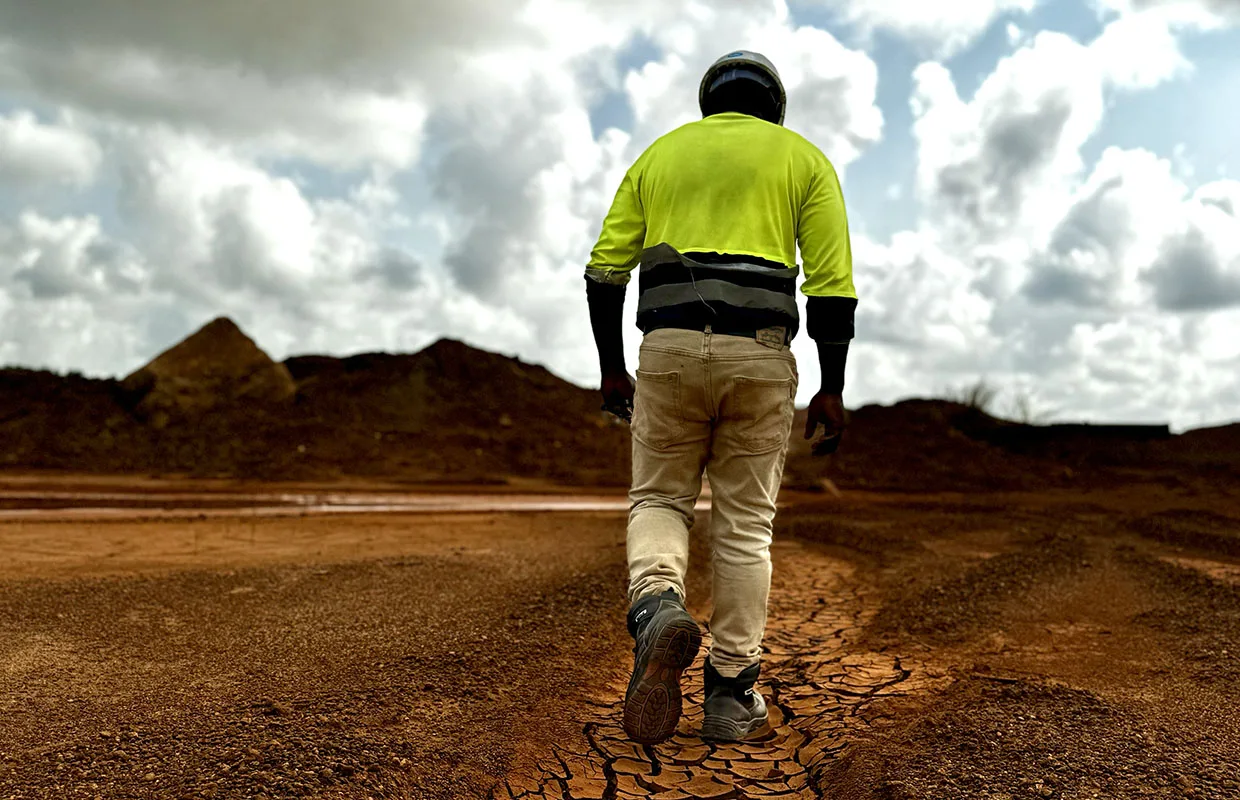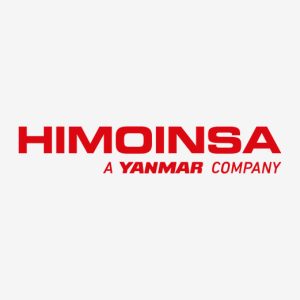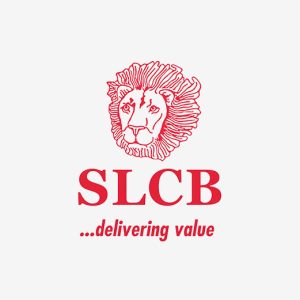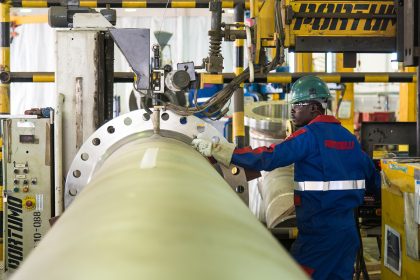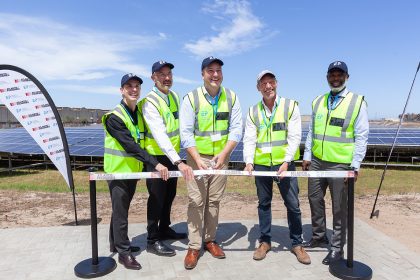A leading international mineral sands producer renowned for its cutting-edge operations, Sierra Rutile is the world’s largest producer of natural rutile. Lima Sufian-Kargbo, CEO, tells us more about the company’s vast experience and plans for a successful, sustainable, and supportive future.
WORLD-CLASS RUTILE PRODUCER
Have you ever wondered where the ingredients in your toothpaste, sunscreen, and makeup come from? Or where the pigments found in paints, inks, or clothing originate? Many would be surprised to discover that these everyday items are heavily reliant on rutile – an oxide mineral found in deep red crystals.
Sierra Rutile, a global leader in natural rutile production, mines the crucially important mineral from its site in southwestern Sierra Leone.
The company boasts an established operating history of over 50 years and supplies approximately 20 percent of the world’s natural rutile.
The industry titan extracts titanium feedstock minerals, namely rutile alongside ilmenite and zircon, which contain high-grade titanium dioxide (TiO2) – a critical mineral heavily relied upon across the world.
Sierra Rutile’s principal activities revolve around a multi-deposit mineral sand mining operation located in the small West African nation. It then ships standard-grade rutile (SGR) products directly to major customers globally and stores industrial-grade rutile (IGR) at its warehouse in Amsterdam to sell to welding customers.
With a client base that spans North America, Europe, and Asia, Sierra Rutile serves a plethora of industries ranging from chemicals and aerospace to welding and pigments, all of which are dependent upon the company’s products.
“We’ve proudly been in operation for over five decades, and with around 1,500 employees, Sierra Rutile is one of the country’s largest private sector employers. We are deeply committed to local economic empowerment and community development,” introduces Lima Sufian-Kargbo, CEO.
Currently, the mining operation is positioned to significantly extend its mine life and reduce the cost of operations with the Sembehun development – one of the largest high-grade natural rutile deposits in the world.
If the proposed project proceeds, it will have a 15-year mine life based on the definitive feasibility study (DFS) completed in 2024.
“At the heart of our operations lies Area 1, a flagship mining and mineral processing hub showcasing not only four wet concentrator plants but also a mineral separation plant continuously being upgraded to improve mineral recovery,” details Sufian-Kargbo.
“We also have other associated infrastructure, such as our dedicated Nitti River Port Terminal.”
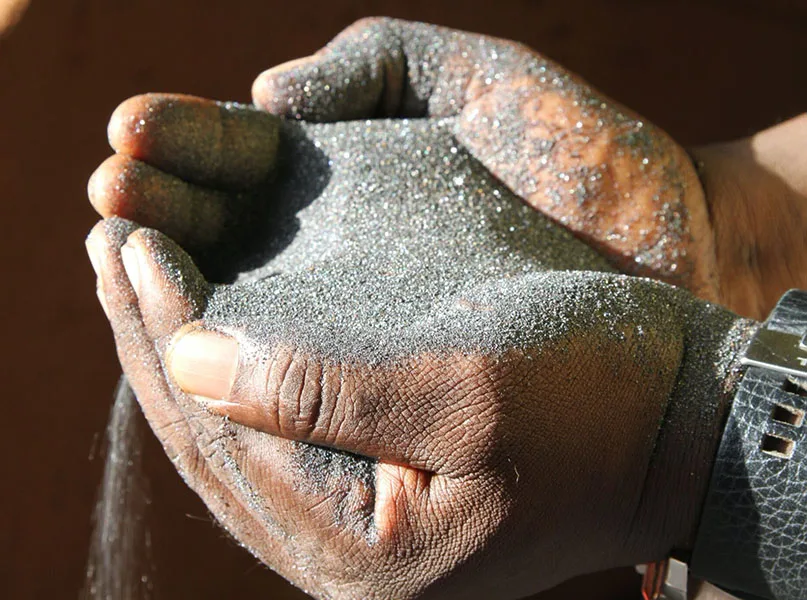
THE IMPORTANCE OF RUTILE
Although not one of the most commonly recognised minerals, rutile serves as a crucial component to many products used across the globe on a daily basis.
Specifically, rutile is the highest-grade naturally occurring TiO2 feedstock used in the manufacture of pigment found in paints, laminates, plastic pipes and packaging, inks, clothing, sunscreen, toothpaste, and the cosmetic industry. The mineral is sized and processed to create a bright white powder that serves as the main source of white colouring in everyday products.
It is also prized as a welding electrode alongside being used to manufacture titanium metal, which has the highest strength-to-weight ratio of all commercial metals and is found across a diverse range of applications, such as aeronautics, medical implants, defence, and sporting goods.
As a whitening agent, light reflector, and provider of ultraviolet (UV) and chemical resistance, TiO2 offers unparalleled performance durability, and as a result, has become an indispensable resource for industries that require high-quality, long-lasting products.
In addition to being used as a pigment, the mineral can be manufactured to create titanium – a chemically resistant metal with a high melting point and low conductivity. These exceptional qualities make it an ideal choice in industries where weight is crucial, such as aerospace.
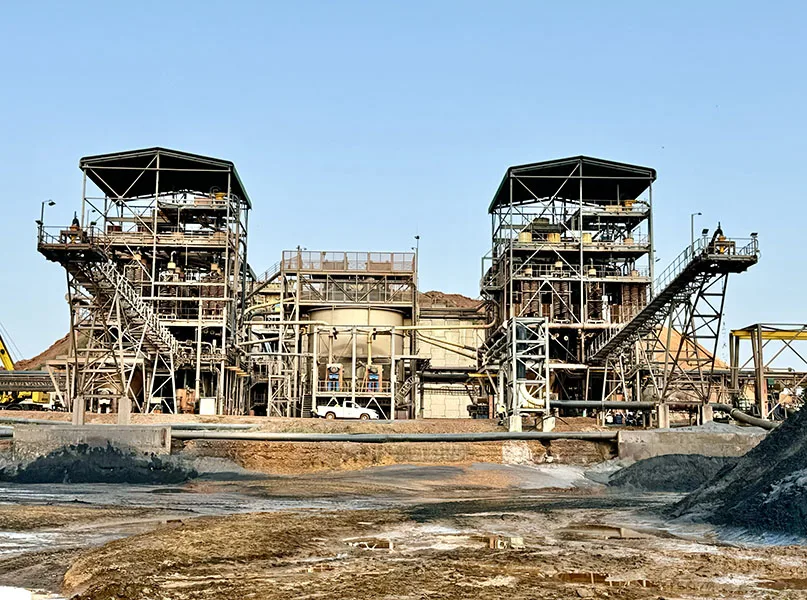
Implementing titanium in aeroplanes helps lessen fuel consumption, resulting in improved efficiency and cost-effectiveness.
Equally, rutile plays a pivotal role as an element in welding electrodes by ensuring their ease of use and effectiveness in the construction, manufacturing, and shipbuilding industries. Rutile in welding electrodes increases the safety, durability, and strength of steel joining and remains a primary component in the production of safe, reliable, and long-lasting welds.
Natural rutile has many benefits as it is the cleanest and most pure form of TiO2 and considered a superior titanium product with environmental benefits and high purity.
The latter stems from the low amount of contaminants found in the product, making it a preferred feedstock for producing high-quality chloride pigment and titanium metal.
Natural rutile has a reduced environmental footprint as less ore is required and less waste is generated in landfill and waste treatment, in addition to the product’s lower transformation energy and carbon consumption.
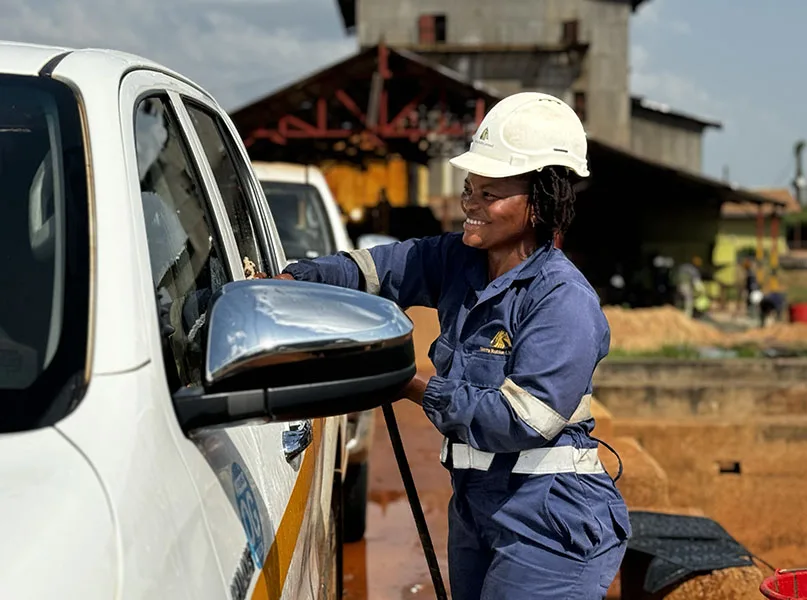
THE TRANSFORMATIVE MINING INDUSTRY
With over 25 years working in civil engineering and project management across Europe and Africa, Sufian-Kargbo is a chartered engineer whose journey began in infrastructure, working on major rail and road projects in the UK.
“As a project manager, delivering the €350 million Makeni Ethanol and Power Project in Sierra Leone was what steered me into the energy sector and expanded my perspective on large-scale industrial projects in Africa,” he specifies.
Prior to Sierra Rutile, Sufian-Kargbo led Centurion Engineering as Managing Director. There, he gained valuable experience in managing an outfit in the tough business environment of Sierra Leone, where there is a dearth of supporting industries and industrial operations over-reliant on the importation of critical components.
Equally, risk management, governance, and compliance can be challenging with constantly changing requirements and legislation.
“Transitioning into the mining industry felt like a natural progression, allowing me to bring my expertise in project delivery and infrastructure development into the world of resource extraction. Today, my focus remains on fostering growth and innovation,”
he details.
Currently, Sufian-Kargbo views the industry as an exciting space to be involved in.
“From my experience at the 2025 Investing in African Mining Indaba, it’s clear the sector is evolving quickly, making way for innovation, collaboration, and investment opportunities across the value chain.”
The industry as a whole is pushing towards sustainability and environmental, social, and governance (ESG) compliance, with a growing demand for critical minerals as the world shifts towards cleaner energy sources.
This offers new opportunities for operators like Sierra Rutile, who has a portfolio of untapped resources to meet the demand.
However, as expected, there are challenges facing the sector, such as rising costs, regulatory changes, and geopolitical instability.
“The mining industry is in a transformative phase, and it’s a pivotal time to be a part of it. There’s a lot of potential to make a real difference, not just in business, but in how we approach mining in a responsible, sustainable, and inclusive way,” insights Sufian-Kargbo.
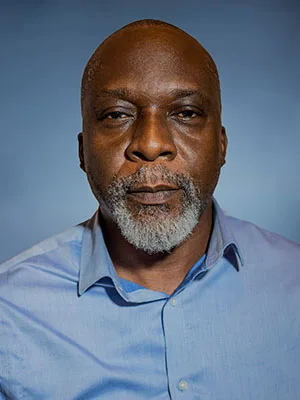
THE ROAD TO LOCAL OWNERSHIP
Sierra Rutile works to distinguish itself in a variety of ways. What serves to set it apart in the mineral sands industry is not only its focus on being a leading producer of high-quality rutile, ilmenite, and zircon, but the manner in which it is able to do so.
The company operates in Sierra Leone, where it has access to some of the world’s highest-grade deposits located in some of the most remote and deprived regions of the country.
“We don’t take our location for granted. We’ve worked hard to integrate sustainability into every part of our operations, from minimising environmental impacts to being deeply commited to in the communities where we operate, investing in areas such as education, healthcare, infrastructure, and livelihood support,” impassions Sufian-Kargbo.
“It’s about making a positive impact that lasts long after our mining activities have ceased.”
Equally, the company prioritises the safety, well-being, and long-term development of its workforce to ensure it continues to be competitive and maintains a market-leading position.
In short, Sierra Rutile’s commitment to sustainable practices, investment in local communities, and track record of operational excellence truly differentiate it within the industry.
Just as important to the company’s journey is being locally owned.
In a truly historic moment for both operator and nation, Leonoil Company – a Sierra Leonean-owned organisation with a strong presence in the country’s petroleum sector – acquired Sierra Rutile in October 2024 through an off-market takeover of its parent company, Sierra Rutile Holdings Limited, on the Australian Stock Exchange (ASX).
“For over five decades, Sierra Rutile had been owned by foreign investors, but this acquisition marked a monumental shift, putting us firmly in local hands,” expands Sufian-Kargbo.
This change represents a major leap forward and offers the company the opportunity to ensure that the people of Sierra Leone are the primary beneficiaries of its mineral resources.
It also positions the country as an even more attractive destination for private investment in mining and other sectors.
“For us at Sierra Rutile, this means greater control over our future endeavours and the strategic direction of the company, with decisions being made closer to home and a renewed focus on creating long-term value,” states Sufian-Kargbo.
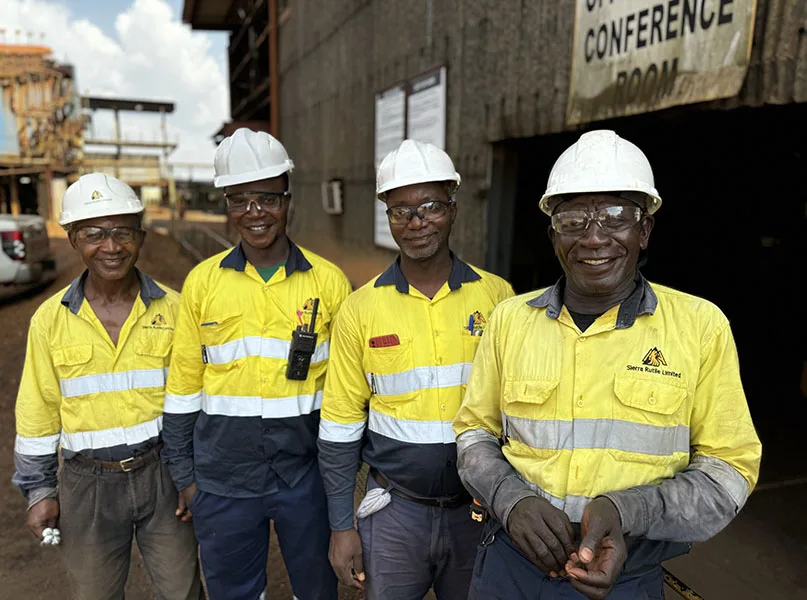
MAKING SEMBEHUN OPERATIONAL
Currently, Sierra Rutile’s medium to long-term vision is to operationalise its rutile mine, Sembehun, by 2028.
Thus, the company’s strategic objective is to extend the life of its current mining area – Area 1 – and operate it profitably through cost-efficiency measures, ensuring it can continue to meet global rutile requirements ahead of Sembehun coming online.
This will be key to securing the mining operator’s position as one of the world’s most established producers of natural rutile and maintaining a supportive off-take environment with its international customers.
“The Sembehun Expansion Project is a game-changer for Sierra Rutile, being one of the most internationally significant and high-quality natural rutile deposits located just 30 kilometres from our existing Area 1 operations,” explains Sufian-Kargbo.
With its exceptional scale and grade, Sembehun offers the potential to substantially reduce the company’s production costs and generate attractive returns.
Insights from the Sembehun DFS, completed in April 2024, highlight the strategic value of the deposit, with an anticipated production of 175,000 tonnes per annum of rutile between 2028 and 2038, which will be critical in addressing the imminent supply gap of natural rutile in global markets.
The project will ultimately leverage the existing Area 1 infrastructure, including processing facilities and transport networks, ensuring a smooth and cost-effective transition to steady-state operations at Sembehun.
“This development will extend our mine life, further cementing Sierra Rutile’s position as a global leader in rutile production and playing a pivotal role in industries that rely on high-quality titanium feedstock,” he notes.
UPLIFTING SIERRA LEONE
Local procurement and relationships with suppliers, businesses, and contractors are a top priority for Sierra Rutile.
“We’re focused on empowering Sierra Leonean businesses as we see them as essential to the success of our operations and long-term growth of the local economy,” divulges Sufian-Kargbo.
Through initiatives such as its ‘Bridging the Gap and Empowering Local Businesses’ workshops, the company has had the chance to engage directly with local contractors and suppliers, fostering collaboration and addressing challenges together.
Sierra Rutile spends approximately 65 percent of its procurement budget with local companies and proactively formulates strategies to increase opportunities for them within its supply chain.
“These partnerships are central to what we do by ensuring local businesses grow with us and that we create a positive and lasting impact on the economy,” details Sufian-Kargbo.
“It’s all about building a sustainable, mutually beneficial relationship where everyone wins.”
In parallel to its procurement initiatives, Sierra Rutile emphasises local content within its workforce, with 97 percent of employees being Sierra Leonean citizens – nearly half of whom are from the communities surrounding the company’s mine.
The mining operator believes in creating a diverse and inclusive work environment where everyone has equal opportunities to thrive.
For instance, gender equality is integral to the company’s operations and taken very seriously. Sierra Rutile has, therefore, established a gender task force to drive diversity and inclusion, with a focus on ensuring women have equal opportunities to be part of all operational aspects and at the forefront of key decision-making.
“This is not just about ticking boxes or meeting quotas – it’s about creating an environment where both men and women can contribute, grow, and succeed in our business equally,” insights Sufian-Kargbo.
“Ultimately, promoting local content and gender equality helps us build a stronger, more diverse local workforce, and that is key to our long-term success.”
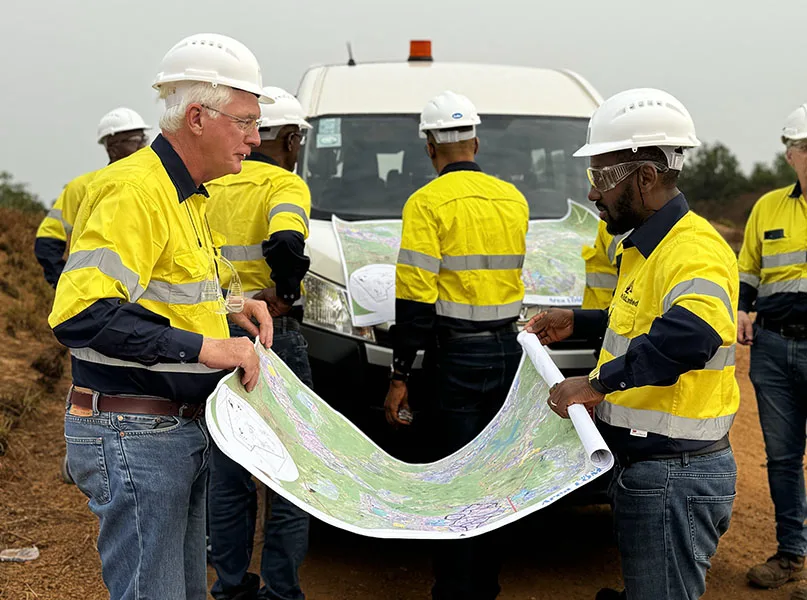
SUPPORTING LOCAL COMMUNITIES
As demonstrated, Sierra Rutile considers engaging with local communities in a structured and inclusive manner as an important responsibility.
The company is proud of its long-standing association with its communities and makes a significant contribution to the neighbouring people through wages, local sourcing and supplies, social investment, and numerous other commitments.
It aims to enable community growth with lasting positive contributions to the nation, having impacts that will prove fruitful long after the company exits operations.
“The focus of our ESG initiatives is to entrench responsible and sustainable practices in every aspect of our mining operations and continue to play a key role in Sierra Leone’s development through job creation, community development, local content promotion, and paying the taxes and royalties that support the economy,” voices Sufian-Kargbo.
“Pivotal to this will be improving the lives of our host communities through investments in education, healthcare, infrastructure, and livelihoods.”
In 2021, Sierra Rutile partnered with the International Finance Corporation (IFC) on a community development programme to develop a range of social investment projects.
As a result of the social risk and impact assessments, four social investment focal points – livelihoods, health and well-being, education, and community building – were identified.
Furthermore, the company has been actively investing in primary healthcare since 2018, leveraging existing infrastructure to provide healthcare to employees and their dependents alongside emergency care to local community members.
The Sierra Rutile Clinic, which was established in the 1970s, is one of the best-equipped medical facilities in the country with a dedicated team of staff providing medical services to employees and their families.
The clinic’s initiatives and resources have allowed an effective early warning surveillance and intervention system to respond to outbreaks of infectious diseases.
Ultimately, the mining operator and its renowned clinic allow individuals to access well-equipped and advanced healthcare in an area where the impacts of a challenged medical system are pronounced, aptly displaying its contributions to the development of a healthy and vibrant community.
A GREEN FUTURE
Sierra Rutile is proudly committed to implementing effective ESG practices, as the company recognises it has a duty to regularly review its sustainability-related procedures and ensure it protects the environment long into the future.
The company actively complies with the Environmental Project Agency of Sierra Leone and makes sure its environmental management practices are aligned with and go beyond the country’s regulatory requirements.
“At the core of our operations is a focus on sustainability, ensuring we meet global market demands whilst creating shared value for all our stakeholders and leaving a positive and lasting impact on the communities in and around our concession area,” furthers Sufian-Kargbo.
Sierra Rutile upholds its commitment to minimising the environmental impact of its mining operations through relentless efforts to preserve wildlife and rehabilitate mined-out areas, having successfully exceeded its annual land rehabilitation targets in 2023 and 2024.
This progressive rehabilitation takes place during the operational phase of the mining life cycle in order to prevent or minimise adverse long-term environmental, physical, and socioeconomic impacts.
The mining operator has rehabilitated approximately 809 hectares of land since 2016, supported by the ongoing efforts of the nursery team. Equally, there is an annual rehabilitation plan published to showcase the company’s many environmental achievements.
“As we look ahead, our dedication to innovation, environmental stewardship, and responsible growth will continue to drive the future of Sierra Rutile,” concludes Sufian-Kargbo.
SIERRA RUTILE PARTNERS




